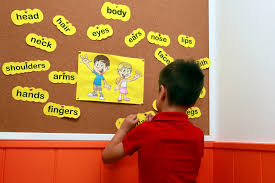Preschool Tutor – Empowering Preschool Minds
Welcome to this essential guide for tutors looking to nurture the intellectual and emotional growth of preschool children. As a tutor, your role is to help build a strong foundation for these young learners, equipping them with the skills and confidence they need to excel in their future academic endeavors.
In this guide, we’ll explore effective strategies and techniques for engaging and inspiring preschoolers while fostering their natural curiosity and love for learning.
Preschool Tutor – Building Blocks of Brilliance
Preschool-aged children are at a critical stage in their development. They are rapidly acquiring new skills, learning how to interact with others, and beginning to understand the world around them. As a tutor, it’s your responsibility to create an environment that nurtures their growth and fosters a love of learning.
Here are some key strategies to help you achieve this goal:
- Establish a positive learning environment: Create a welcoming, stimulating, and safe space for your preschoolers to explore and learn. Set up clearly defined activity areas with a variety of materials that cater to different learning styles and preferences. Encourage creativity and self-expression by providing ample opportunities for children to express themselves through art, music, and imaginative play.
- Encourage hands-on learning: Preschoolers learn best through active engagement and hands-on experiences. Encourage children to explore, experiment, and discover new concepts by providing activities that involve all their senses. For instance, teach counting and number recognition through games with blocks or beads, and introduce the concept of shapes and colors through puzzles and pattern activities.
- Foster social and emotional development: Developing strong social and emotional skills is just as important as academic learning. Encourage children to collaborate and communicate with one another through group activities, games, and discussions. Teach empathy, kindness, and cooperation by modeling appropriate behavior and using positive reinforcement to praise good choices.
- Use open-ended questions and prompts: Asking open-ended questions encourages critical thinking, problem-solving, and creativity. Instead of simply providing answers, ask questions that require the children to think, reason, and express their thoughts. For example, instead of asking, “What color is this?”, ask, “Can you tell me about the colors you see in this picture?”
- Focus on the process, not just the outcome: Encourage children to take risks and learn from their mistakes. Praise effort and persistence, rather than just the end result. This approach will help them develop a growth mindset and build resilience in the face of challenges.
- Be patient and adaptable: Each child learns at their own pace, and it’s important to remain patient and adaptable in your teaching approach. Observe and listen to your students to determine their needs and interests, and be prepared to modify your lesson plans accordingly.
- Communicate with parents: Maintain an open line of communication with parents and caregivers to share progress, challenges, and successes. This collaboration will help reinforce the child’s learning experience and foster a strong support network.
- Stay up-to-date with best practices: As a preschool private tutor, it’s essential to stay informed about the latest research and best practices in early childhood education. Attend professional development workshops, join online forums, and read articles to continuously improve your teaching strategies.
Effective preschool tutoring goes beyond academic instruction. By creating a positive, nurturing environment and employing developmentally appropriate strategies, you can empower young learners to reach their full potential. By laying the foundation for a lifelong love of learning, you will help shape the bright and brilliant minds of tomorrow.

